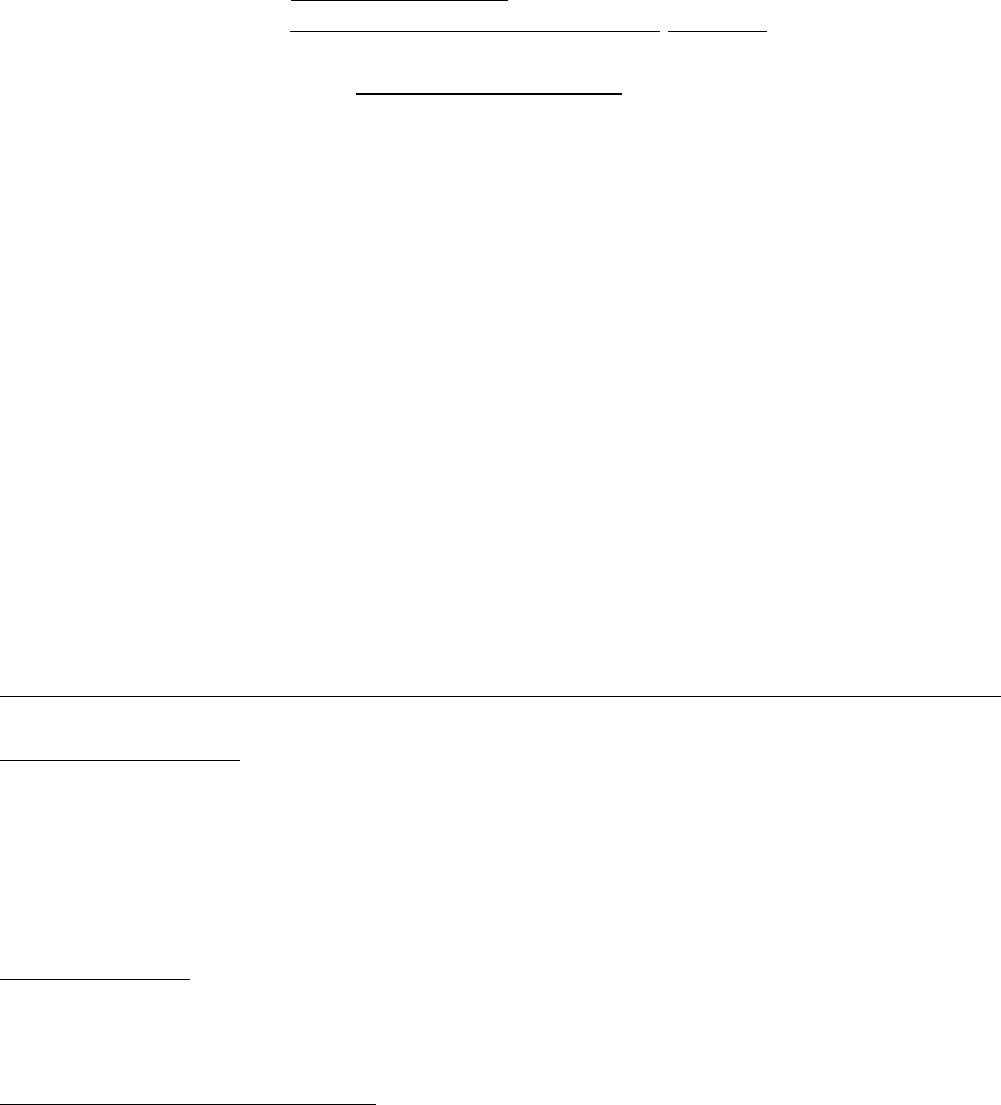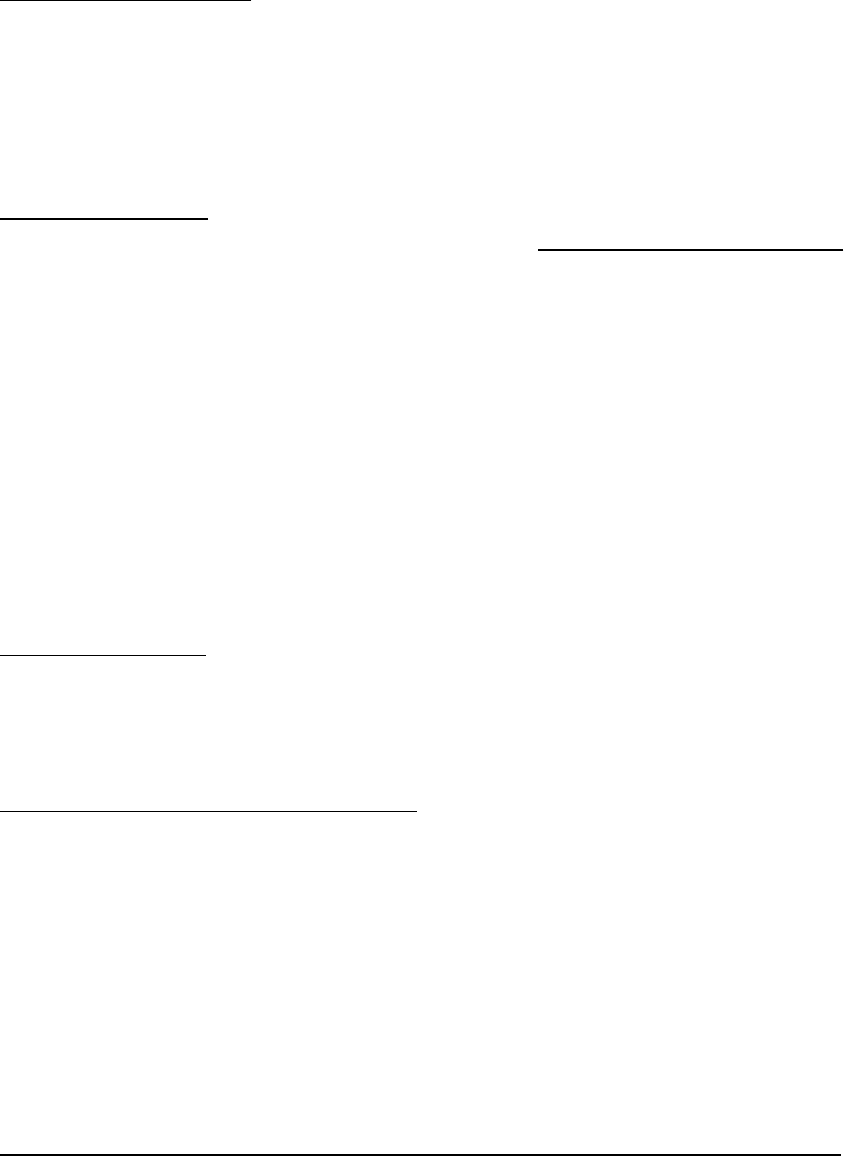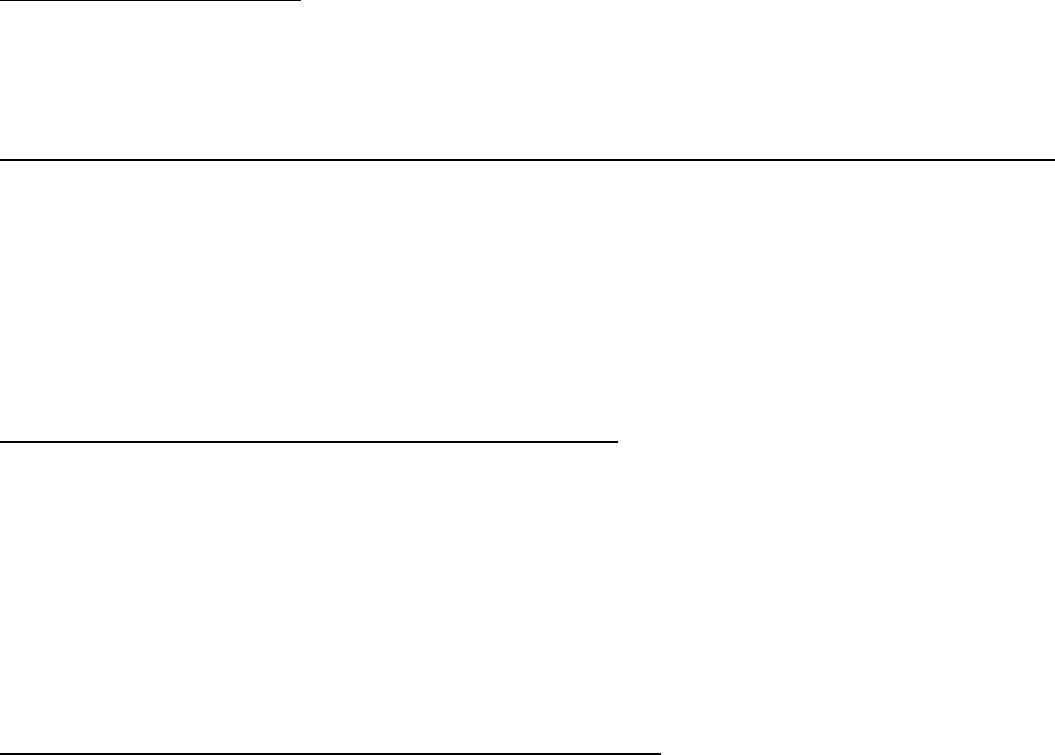
Medicaid for the Elderly and Disabled
The Alabama Medicaid Agency has a number of programs for the elderly and
disabled. Medicaid for Institutional care is for people in nursing homes, hospitals,
and ICF-MR facilities.
Home and Community Based Waivers are for people who are
elderly, disabled, homebound, mentally retarded, or who have certain diagnoses and
who live in the community.
SSI Related Medicaid programs are for people who no
longer receive Supplemental Security Income (SSI) payments, but have their
Medicaid benefits protected under certain laws.
To be eligible for the Medicaid programs listed above, you must:
* Be living in Alabama,
* Be a U.S. citizen (You must provide proof of citizenship and identity
unless you have been approved for Medicare or SSI.), or
Be in satisfactory immigration status (You must provide proof of
immigrant status.),
* Meet certain medical criteria,
* Have a monthly income below a certain limit, and
* Have resources below a certain limit.
NOTE: Eligibility for Home and Community Based Waivers (page 5) depends on the
availability of slots from the administering agency.
Nursing Home, Hospital, and ICF-MR Medicaid for an Individual:
Medical Approval. An applicant must be medically approved by Medicaid or
Medicare for the nursing facility to be paid. The nursing facility must submit the
medical information to Medicaid. An applicant for Nursing Home, Hospital, or
ICF-MR Medicaid must also be a resident of an approved medical institution for at
least 30 continuous days to be eligible for Medicaid payments. (The exception is an
SSI recipient.)
Income Limit. The income limit for Nursing Home, Hospital, or ICF-MR
Medicaid is $1,911 per month for an individual. (This income limit changes each
January.)
Some examples of income are:
Black Lung Railroad Retirement
Social Security Federal Civil Service
Medicaid for the Elderly and Disabled (01/2008) Alabama Medicaid Agency

Examples of income (continued):
Veterans Benefits (less Aid Private Pensions or Retirements
and Attendant Care, and
Continuing Medical Expenses)
SSI and welfare checks do not count as income.
Excess Income. If you are applying for Medicaid in a nursing home and have excess
income, you have the option to establish a Qualifying Income Trust (QIT). The estab-
lishment of this trust, establishing the trust bank account, and the deposit of an
income source to a corresponding trust account allows Medicaid to disregard that
income in that month for the purpose of determining eligibility.
Medicaid has strict criteria for the establishment of an acceptable QIT. Contact the
Medicaid District Office for a QIT packet or to download a packet, visit our website,
www.medicaid.alabama.gov. If you feel you need legal advice on setting up a QIT,
contact a private attorney or call the local Area Agency on Aging at 1-800-243-5463
for a referral. The trust document, proof of establishment of the trust bank account,
and verification of the deposit of an income source to the trust account should be
submitted with the nursing home application.
Resource limit. The resource limit for Nursing Home, Hospital, and ICF-MR
Medicaid, as of the first day of each month, is $2,000. Special rules apply for an
individual in a medical institution with a spouse at home. See Page 4 of this handout
for information as to how Medicaid treats income and resources for a married couple.
Some examples of resources are:
Cash Mortgages
Cash surrender value of life Mutual Funds
insurance when face value of Promissory Notes
all policies exceeds $5,000 Real Estate
Checking and Savings Stocks and Bonds
Loans Time Deposits (Certificates of
Mineral and Timber Rights, etc. Deposit, Annuities, etc.)
Some resources do not count toward the $2,000 resource limit, they are:
1. Household goods and personal effects.
2. Life insurance (or any insurance with a cash surrender value), if the total
combined face value is $5,000 or less.
Page 2

3. Burial fund or prepaid burial contract of up to $5,000. (The amount
excluded is reduced by the face value of life insurance excluded in #2 above.
The District Office will have to have copies of the fund or contract.)
4. Burial space items (casket, vault, burial plot, marker, opening and closing of
grave).
5. One automobile per household, if used by the household member.
6. Property may not be counted as a resource in the following situations:
a. Intent to return home from the medical institution,
b. A bona fide effort is being made to sell the property,
c. If a spouse, other dependent relative, or joint owner is living on the
property,
d. The property, valued less than $6,000, is income producing,
e. If the property interest is a life estate.
NOTE: A lien may be required.
All property information such as deeds, wills, etc. will need to be submitted to the
Medicaid District Office for review.
Excess Resources. The resource limit for Nursing Home, Hospital, and ICF-MR
Medicaid is $2,000 before the first day of the month. This means that in order to be
eligible for Medicaid you must not have more than $2,000 in resources on the first
day of any given month.
To keep from going over the $2,000 limit:
* If you owe money to the nursing home, pay it
before the first of the month.
* Pay any of your bills that are due
before the first of the month.
* Do not let anyone else deposit money into your bank account to help pay your
bills. It may be counted as income in the month of the deposit and a
countable resource the following month.
* If you get a Social Security check or other pension check and it is left in your
bank account at the beginning of the next month, it is counted as a resource.
* If you have a life insurance or a burial contract for more than the limit, the
amount over the limit will be counted as a resource.
Remember, if you have resources in excess of $2,000 on the first day of the
month, you will
NOT be eligible for Medicaid that month.
Page 3

Disposal of Resources. You may not be eligible for Institutional Medicaid if you sold
(for less than fair market value), gave away or transferred any resource(s) that you or
your spouse owned.
Nursing Home, Hospital, and ICF-MR Medicaid for a married couple:
If a couple is legally married and one spouse is a patient in a medical institution
(institutionalized spouse) while the other spouse remains in the community
(community spouse), special rules apply for Nursing Home, Hospital, and ICF-MR
Medicaid. Some or all of the assets of the couple may be protected for the community
spouse. In addition, some of the income of the institutional spouse may be allocated
to the community spouse.
Income Allocation for the Community Spouse. In order to receive a portion of
the institutionalized spouse’s income, the community spouse cannot have more
than $1,712 per month. (This income allocation amount changes each July.)
If the community spouse has gross income at or above $1,712, no additional income
can be allocated from the institutionalized spouse to the community spouse. If the
community spouse has gross (before anything is taken out) monthly income that is
less than $1,712 per month, the institutionalized spouse may allocate income to the
community spouse.
Resource Assessment for the Community Spouse.
When someone enters the nursing home and their spouse remains in the
community, an assessment of the combined assets (resources) is done by the
Medicaid District Office. The Medicaid worker will ask for proof of all assets owned by
the couple, either solely or jointly, as of the date the institutionalized spouse
entered a medical institution. (Some of the same resource exclusions apply as
mentioned earlier in this handout. The home will not be counted as long as the
spouse lives in the home.) The value of all countable assets will be added together.
The amount that can be protected for the community spouse will be determined by
the Medicaid District Office.
If the total value of the couple’s countable assets is $27,000 or less, spend down of
the assets for the institutionalized spouse will not be required. If the combined
countable assets are more than $27,000, some of the assets must be spent on the
institutionalized spouse before he or she will be eligible for Medicaid assistance. (The
Medicaid District Office will determine the amount of assets to be spent down.) If the
value of the combined countable assets is more than $50,000, but less than
$208,800, one half of the assets will be protected for the community spouse. The
other half will be counted to the institutionalized spouse, who will not be eligible for
Medicaid until his or her share of the assets is spent down to $2,000 before the first
day of a month.
Page 4

The maximum value of the countable assets that can be protected for the
community spouse is $104,400. The couple must have $208,800 or more on hand
as of the date the institutionalized spouse entered a medical institution in order to
allow the maximum amount to be kept by the community spouse.
Home and Community Based Waivers:
The waivers under Home and Community Based Waiver Program are Elderly and
Disabled, State of Alabama Independent Living (SAIL), Mentally Retarded (MR),
HIV/AIDS, and Technology Assisted (TA). For detailed information about the level of
care requirements and the type of services that are provided in each waiver see the
“Home and Community Based Waivers” handout.
Medical Approval. An applicant for Home and Community Based Waivers must be
medically approved by Medicaid or Medicare.
Income limits. Elderly and Disabled Waiver - - $1,911 per month
Independent Living Waiver - - -
$1,911 per month
Mentally Retarded Waiver - - -
$1,911 per month
HIV/AIDS Waiver ----
$1,911 per month
Technology Assisted Waiver - -
$1,911 per month
(These income limits change each January.)
Resource limits. The resource limit for Home and Community Based Waivers is
$2,000 for an individual.
Spousal impoverishment rules do not apply to waivers. Income and resources of the
spouse do not apply to waivers.
To apply for the Elderly & Disabled Waiver contact your local Area Agency on Aging at
1-800-243-5463 or your local Department of Public Health in your county of
residence.
For the State of Alabama Independent Living Waiver contact your local Department of
Rehabilitation Services or call 1-800-441-7607.
For the Mentally Retarded Waiver contact your local Department of Mental Health or
call 1-800-367-0955.
For the HIV/AIDS Waiver contact the local Department of Public Health in your
county of residence or call 334-206-5341.
For the Technology Assisted Waiver contact the Department of Rehabilitation Services
at 1-800-441-7607.
Limited funds and slots are available for these waivers.
Page 5

Page 6
Qualified Disabled Working Individuals (QDWI) Program.
This program can pay the Medicare Part A premiums for certain disabled individuals
who lose Medicare coverage because of work. Individuals are notified by the Social
Security Administration if they may be eligible for this program.
Income Limits. The income limit is $1,722 per month for an individual and $2,302
for a couple. (This income limit changes each February.)
Resource limits. The resource limit for the Qualified Disabled Working Individuals
Program is $4,000 for an individual.
SSI Related Medicaid:
Income limits. All SSI Related programs, such as Widow/Widower, Disabled Adult
Child (DAC), Retroactive SSI, and Continuous (Pickle) Medicaid have an income limit
that equals the Federal Benefit Rate (FBR) plus $20 per month.
The income limit for SSI Related Medicaid is $657 for an individual and $976 for a
couple. (This income limit changes each January.)
NOTE: The couple income limit applies only if both are eligible, unless the ineligible
spouse’s income and resources are deemed (which means counting a portion of the
income and resources) to the applicant. If only one person is eligible, the individual
income limit applies.
In the Widow/Widower, DAC and Continuous cases, if the applicant otherwise
qualifies, some income is not counted against the limit, such as Widow/Widower
benefits, Child’s benefits, or Social Security cost-of-living increases.
Resource limits. The resource limit for SSI Related Medicaid is $2,000.
Some resources do not count toward the $2,000 resource limit, they are:
1. Household goods and personal effects.
2. Life insurance (or any insurance with a cash surrender value), if the total
combined face value is $1,500 or less.
3. Burial fund or prepaid burial contract of up to $1,500. (The amount
excluded is reduced by life insurance. The District Office will have to have
copies of the fund or contract.)

4. Burial space items (casket, vault, burial plot, marker, opening and closing of
grave).
5. One automobile per household, if used by household member.
Please note: You must apply for and agree to accept any income from annuities,
pensions, retirement, disability benefits, or other income to which you are entitled.
Applying for these benefits is a condition of eligibility for Medicaid and failure to apply
could keep you from having Medicaid eligibility.
For Veterans or Veteran’s Dependents:
If you receive or are eligible to receive VA benefits, you must apply for the maximum
benefit available. The amount you receive varies depending on the type of benefit.
Rather than increase, some VA benefits are dropped to $90 while you are in a
nursing home. You should contact VA to determine how your benefit will be affected
while you are in the nursing home.
Page 7

Some Things You Need to Know When Submitting an Application
Submitting an Application:
Complete the application to the best of your ability. The application must be
completed and signed in ink (pencil copies are not accepted). Make sure the
applicant’s Name, Social Security Number, and Medicare Number are correct. Also
include the Spouse’s Name, SS# and VA Claim# on the application.
Submit the application, along with copies of the following information, to the
appropriate District Office. You may want to include as many of the following items as
you can when you submit the nursing home application. These items, as well as
others that the Medicaid Eligibility Specialist may ask for, are required to determine
nursing home eligibility:
1. Copies of Medicare and Social Security cards.
2. Verification of the gross (before anything is taken out) amount of Social
Security, Veterans Administration, Railroad Retirement, Civil Service checks,
private pension checks, rental income and annuities. (Verification should
include claim and/or identification numbers.)
3. Copies of the last three bank statements (all accounts). (Once the Medicaid
Eligibility Specialist reviews the case, he or she may have to ask for
additional bank statements.)
4. Verification of CDs, IRAs and Savings Bonds.
5. Verification of stocks, bonds and mutual funds.
6. Copies of deeds to property currently owned. (This includes heir property,
life estate, etc.) Also, purchase and sale deeds to property which has been
sold or transferred within the past five (5) years.
7. Copies of trusts, mortgages, loans, and promissory notes.
8. Copies of all insurance policies, including:
a. Life, burial, funeral, vault, casket, cash, term and/or group.
b. Long Term Care policies.
c. Health, hospital, and/or cancer policies. (A copy of the card or
premium notice and copy of payment method is needed.)
9. Copies of pre-need/prearranged burial contracts, including an itemized list
of charges.
10. Verification of gross (before anything is taken out) wages.
11. Copy of power of attorney, guardianship papers, or curator papers.
Always keep a copy of the original application you submit to Medicaid. Send
copies
of all other documents, do not send your original documents except for proof of
citizenship or identity, if required. Proof of citizenship and identity is not needed if
you are currently receiving SSI benefits or are entitled to or enrolled in Medicare.
Page 8

If additional information is requested, make sure you supply the information as soon
as possible. If you have questions about the information requested, call the Medicaid
Eligibility Specialist. If you need assistance in getting the information requested, see
if the nursing home social service staff or business office worker is willing to assist.
Some things that can make a claimant ineligible:
— If someone else (a family member) deposits money (income) into the claimant’s
bank account, this is considered a “contribution” and must be budgeted as income to
the claimant, which may make the claimant ineligible..
— If the claimant’s countable resources exceed $2,000 on the first day of the month,
the claimant will be ineligible. (An example would be if the claimant receives their
June check in May, Medicaid will not count the June check as a resource for May.
Medicaid will count the June check as income for June. However, if the claimant’s
monthly income is allowed to accumulate and the countable resources exceed
$2,000, the claimant will be ineligible.)
— Transfers of assets/resources may affect eligibility. For the institutionalized
claimant the transfer of assets/resources by claimant or claimant’s spouse could
cause the claimant to be ineligible for nursing home payment. For waiver Medicaid
programs the transfer of assets/resources could cause the claimant to be totally
ineligible for Medicaid.
If an application is denied, there may be some things that the claimant can do
to become eligible:
1. Spend-Down of Money.
Medicaid looks at resources on the first moment of the first day of the month. The
countable resource limit for an individual is $2,000. If the total value of the couple’s
countable assets is $27,000 or less, spend down of the assets for the institutionalized
spouse will not be required. Monies can be spent down, however, the claimant’s
money is to be spent for the claimant’s needs and/or expenses, not the community
spouse.
2. Excess Income.
If the claimant has excess income, a “Qualified Income Trust” may need to be
established. [
Qualifying Income Trust (QIT) packets are now available at the
Medicaid District Office or to download a packet, visit our website,
www.medicaid.alabama.gov. QITs are necessary when a claimant’s income exceeds
the Medicaid income limit. (If you receive VA or State of Alabama retirement, talk
with the Medicaid Eligibility Specialist before establishing a QIT.)]
Page 9

3. Excess Resources.
If excess resources exist, you need to discuss burial exclusions and make sure that
excess resources are spent for the needs of the claimant in a timely and efficient
manner.
[Medicaid looks at countable resources as of the first moment of the first day of the
month. It is the sponsor’s responsibility to reapply in a timely manner. Make sure
that you keep accurate records (bank statements, cancelled checks, receipts, etc.) to
show how the money of the claimant has been spent.]
The Award Process:
When the application investigation has been completed, an award notice will be
mailed indicating an eligibility date and a liability amount.
The liability amount is the amount that the claimant is to pay the nursing home each
month for room and board. The nursing home will bill Medicaid for the difference.
The “liability” is calculated by subtracting the following from the claimant’s monthly
gross income:
* Personal Needs ($30.00) or VA ($120.00, if VA check reduced to $90.00),
* Allocation to Community Spouse (if the nursing home applicant has a spouse
who resides in the community, we can allocate a certain amount of the
claimant’s monthly income to the spouse in the community),
* Allocation to family members,
* Health Insurance Premiums (verified as being paid with claimant’s money).
The Annual Review Process:
Once a claimant has been approved for Medicaid, a review of the claimant’s financial
circumstances will be conducted annually. This means that one year from the date of
the award notice, an annual review form will be mailed to the sponsor.
It is very important that the sponsor complete the form as soon as possible and return
it, along with any requested information. Make sure the review form is signed, all the
questions are answered and the requested information is enclosed.
You have ten (10) days to complete and return the form. If the form is not returned,
along with the requested information, the active Medicaid case will be terminated.
Between Annual Reviews:
It is the responsibility of the claimant or sponsor to report any financial changes to
their Medicaid Eligibility Specialist within ten (10) days of the change. Examples of
changes are: if claimant receives an increase in benefits or money from another
source, if claimant returns home, if the sponsor changes his or her address, etc.
(If you are not sure if you should report a change, contact your Medicaid Eligibility
Specialist.)
Page 10
Medicaid District Offices
Address Telephone Number Counties served
______________________________________________________________________________________
Auburn-Opelika District Office 1-800-362-1504 Bullock Lee Russell
1716 Catherine Court, Suite 1-A 334-887-3840 (FAX) Chambers Macon Talladega
Auburn, AL 36830-9938 Clay Randolph Tallapoosa
Coosa
______________________________________________________________________________________
Birmingham District Office 1-800-362-1504 Jefferson St. Clair
486 Palisades Blvd. 205-414-9335 (FAX)
Birmingham, AL 35209-5154
______________________________________________________________________________________
Decatur District Office 1-800-362-1504 Cullman Madison
2119 Westmeade Dr. S.W., Suite 1 256-353-1799 (FAX) Jackson Morgan
Decatur, AL 35603-1050
______________________________________________________________________________________
Dothan District Office 1-800-362-1504 Barbour Covington Henry
2652 Fortner Street, Suite 4 334-794-3741 (FAX) Coffee Dale Houston
Dothan, AL 36305-3203 Conecuh Geneva
______________________________________________________________________________________
Florence District Office 1-800-362-1504 Colbert Lawrence Marion
214 E. College Street 256-740-0228 (FAX) Franklin Limestone Winston
Florence, AL 35630-5606 Lauderdale
______________________________________________________________________________________
Gadsden District Office 1-800-362-1504 Blount Cleburne Marshall
200 West Meighan Blvd., Suite D 256-546-4973 (FAX) Calhoun Dekalb
Gadsden, AL 35901-3200 Cherokee Etowah
______________________________________________________________________________________
Mobile District Office 1-800-362-1504 Baldwin Mobile
3280 Dauphin Street 251-471-6930 (FAX) Escambia Washington
Suite B 100 B
Mobile, AL 36606-4049
______________________________________________________________________________________
Montgomery District Office 1-800-362-1504 Autauga Montgomery
501 Dexter Avenue 334-242-3835 (FAX) Crenshaw Pike
(P.O. Box 5624, Zip 36103-5624) Elmore
Montgomery, AL 36104-3744
______________________________________________________________________________________
Selma District Office 1-800-362-1504 Butler Dallas Monroe
106 Executive Park Lane 334-418-0036 (FAX) Chilton Lowndes Perry
Selma AL 36701-7734 Choctaw Marengo Wilcox
Clarke
______________________________________________________________________________________
Tuscaloosa District Office 1-800-362-1504 Bibb Lamar Sumter
907 22
nd
Avenue 205-345-9414 (FAX) Fayette Pickens Tuscaloosa
Tuscaloosa, AL 35401-5822 Greene Shelby Walker
Hale
